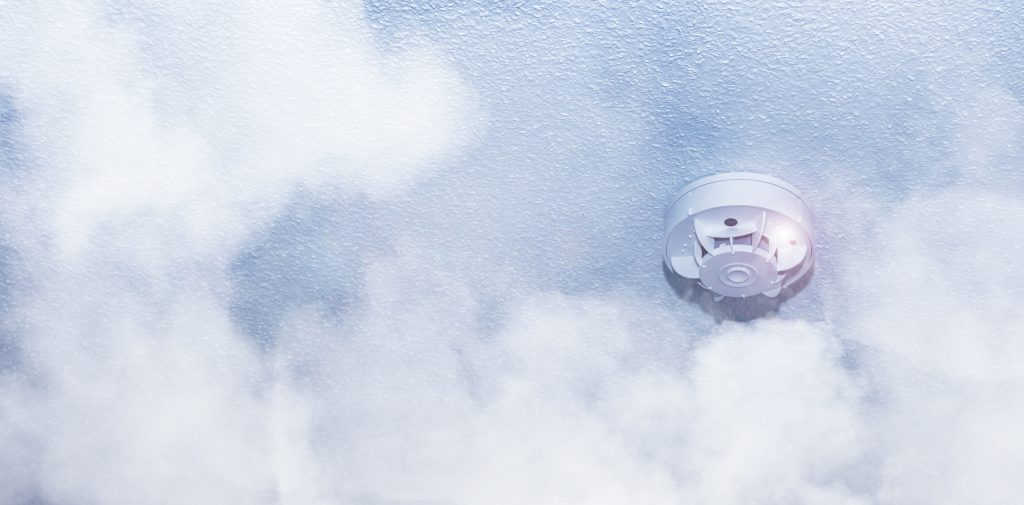Not all fire protection systems are created equal, and choosing the best one for your home can seem intimidating if you’re not an expert on this subject. Fortunately, the following guide to choosing the best fire protection for your home will help you with everything from identifying the threats you may face to understanding how your local regulations work so that you can be sure you’re in compliance with the law. By considering the important factors below, you’ll have all the information you need to make an informed decision about your fire protection system before installation begins.
Why you need a fire extinguisher in your home
We’ve all seen them: Red cylinders and shiny brass tops, propped in a corner or nestled in your kitchen. But when was the last time you actually thought about them? If you don’t have a fire extinguisher in your home, now is as good a time as any to reconsider. Whether you live in an apartment or own your own house, every home should have one (or more) on hand—but how do you decide which type of fire extinguisher is best for your family? The type of extinguisher you choose will depend on what kind of fires are likely to break out at home and where that blaze could start. Here are some questions to ask yourself: Is there anything combustible nearby?
The most popular types of fire extinguishers
It’s important to understand how fire extinguishers work, as well as their limitations. The three most common types of extinguishers are water-based, dry chemical, and carbon dioxide. Water is often used on grease fires, while dry chemicals can be used on flammable liquids and greases. Carbon dioxide works best on electrical fires but isn’t great for those involving highly combustible solids or gases like propane gas or natural gas. Keep in mind that some fire extinguishers may be more appropriate than others based on your home’s layout (and family size) and your proximity to a fire hydrant.
How do you know which fire extinguisher is right for you?
The most important feature to consider when choosing a fire extinguisher is what kind of fire it’s capable of fighting. First, identify what kind of material you want to extinguish. If you have ordinary combustibles, like paper and wood, then your fire extinguisher should be rated ABC. If you have flammable liquids and gases, like oil or propane, then your fire extinguisher should be rated BC. If you have electrical equipment (the real shocker here), then your fire extinguisher should be rated NBC.
Choosing the right place to put your fire extinguisher
The location of your fire extinguisher is important as it will affect how quickly you can access it in an emergency. If you are choosing a portable fire extinguisher, make sure you put it somewhere easily accessible and convenient, but also somewhere safe. You should not put a portable fire extinguisher inside cabinets or under tables as you may forget about it or trip over it when trying to find it. Make sure that your home is easy for yourself, family members, and friends to navigate around in an emergency; you do not want people getting injured because they tripped over a chair or got lost trying to find their way out of your house.
Which Type Do I Need?
There are multiple types of fire sprinklers, including dry-pipe and wet-pipe. Dry-pipe systems are designed to prevent fire from spreading if they lose water pressure during ablaze—and they’re well-suited for older buildings. Wet pipe systems are more commonly used in new construction because they start spraying as soon as the water is detected. Many modern homes have both varieties of sprinklers; dry pipes serve as backup while wet pipes provide initial protection. If you’re not sure which type you need, contact a professional who can advise you on how to protect your family and home best based on your building’s structure and layout.
What should I look out for when buying?
The amount of fire protection you need is a very individual choice. It all depends on how vulnerable your home is, and what you have in it that needs protecting. The type of building materials used, proximity to other buildings and nearby flammable objects like trees and bushes are just some of the factors that can affect your decision. There are online tools available like check my house, which will ask you a series of questions so you can figure out how much protection is needed.
Pros & Cons
Smoke detectors come in two main forms: ionization and photoelectric. Ionization smoke detectors are great at detecting flaming fires but do poorly at detecting slow, smoldering fires. Photoelectric detectors on the other hand are very good at picking up smoldering fires, but less effective against flaming ones. The best fire protection system is one that has both kinds of smoke detectors in your home — Fire Alarm Installation Dartford a couple per floor of your house or apartment building
